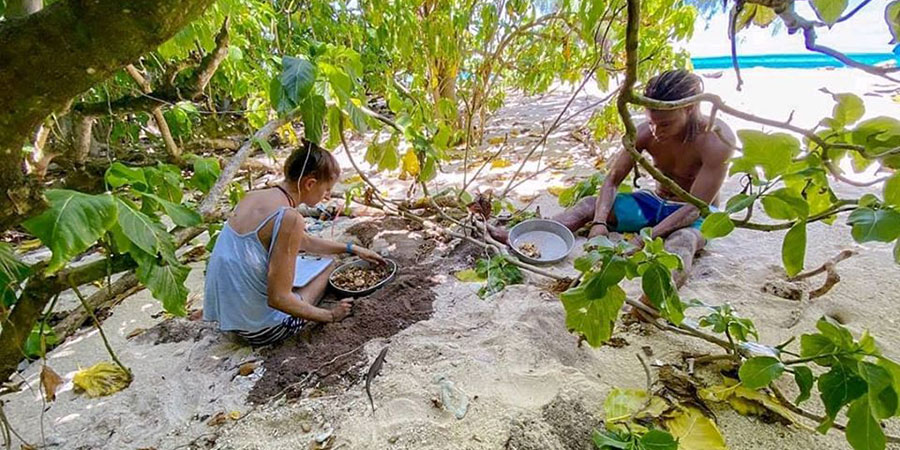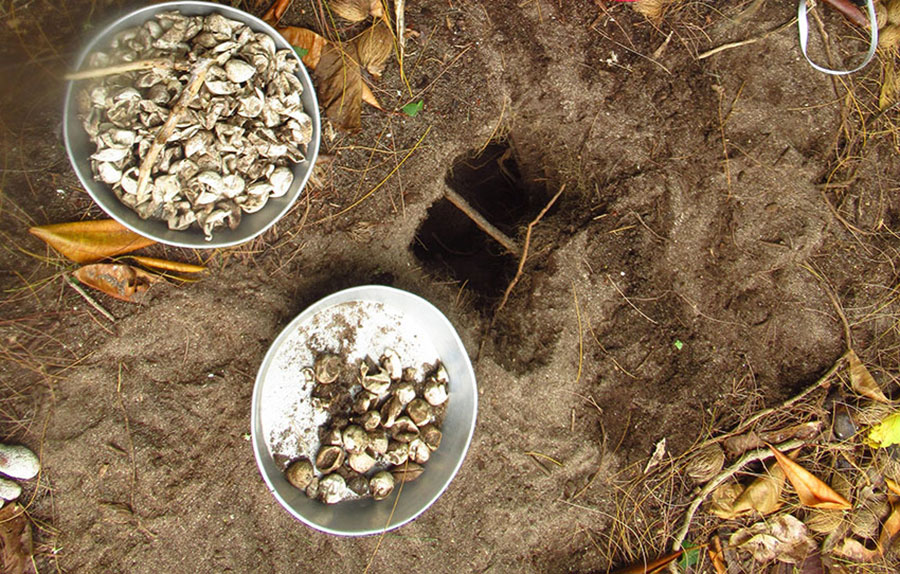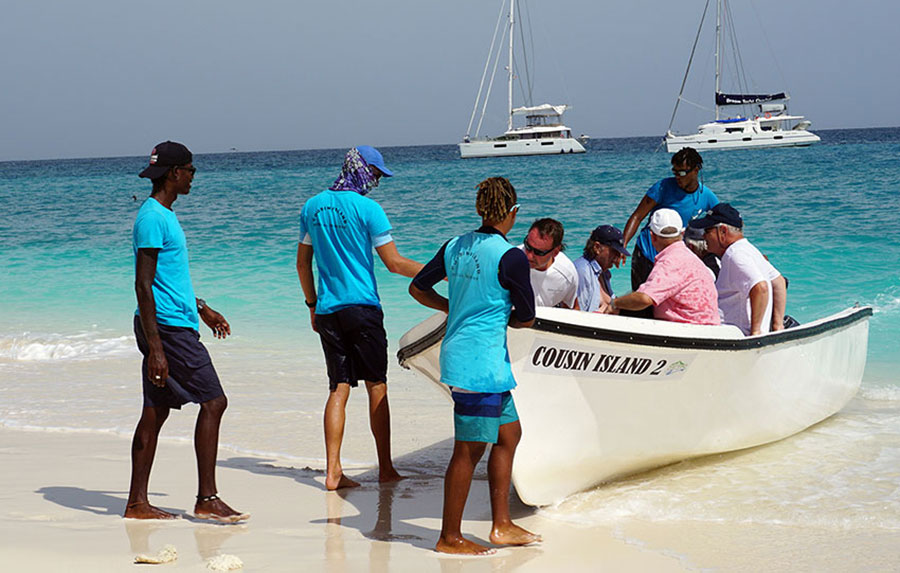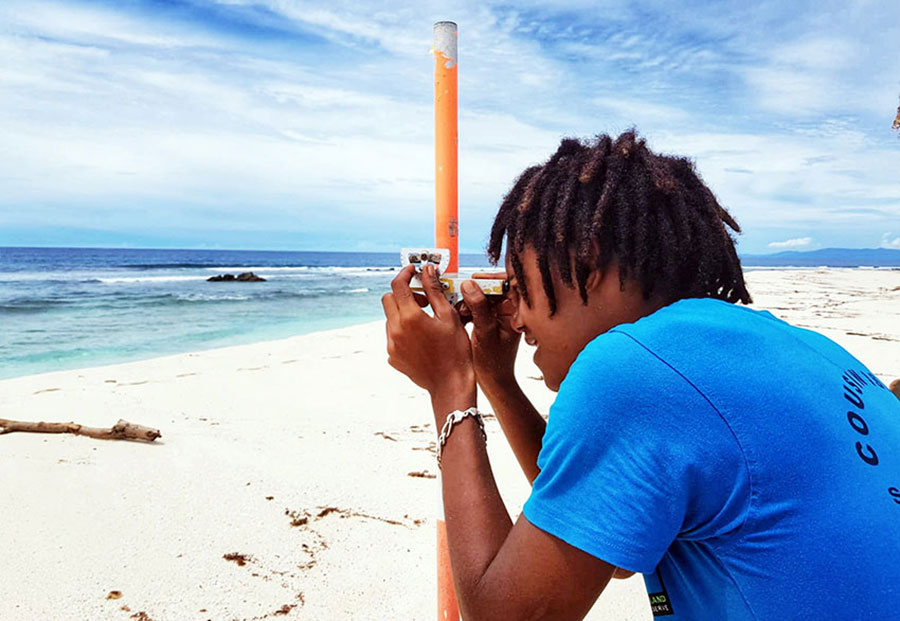
It’s a hot day on Cousin Island Special Reserve. Seychelles is on a 21-day lockdown due to COVID-19 and everyone is at home social-distancing. On the sand, a warden sits counting the empty shells of Hawksbill turtle (Eretmochelys imbricata) eggs, the contents of a recently hatched nest. Next to him, the conservation officer keeps a record: whole shells, fragments, unhatched eggs, and dead hatchlings.
The trees at the edge of the beach and a light breeze offer some relief from the hot sun. But the mosquitoes are still biting. However, these two are veterans of the island. They ignore the pesky insects and carry on working.

It is not a pleasant task, what with the accompanying stench from the shells, but it’s an incredibly important one. It is the end of the critically endangered Hawksbill turtle nesting season on the island, which is the most important rookery in the western Indian Ocean for these turtles. Hatchlings have emerged from nests located all over the island and scampered to the ocean to start their new life. The last task left for this season is to dig up the nests to check on hatching success and to collect data for long term monitoring.
The monitoring is not unusual for Cousin Island. However, on a normal day the warden would have been involved in an entirely different activity. He would be driving a boat ferrying dozens of eager tourists back to their vessels after guiding them around the island.
But on this island, as is the case with the rest of Seychelles, tourism has come to a screeching halt due to the coronavirus threat and subsequent closure of borders to stem its spread in the country.

And while our health personnel were keeping us safe and we stayed at home during lockdown, the wardens chose to stay behind on the reserve to carry on vital conservation work as well as protect the Special Reserve from illegal activities.
“As you know Cousin Island is a protected area with endangered fauna and flora, and conservation has to continue even during unfamiliar times such as those brought on by COVID-19,” says Dr. Nirmal Shah, Chief Executive of Nature Seychelles, the NGO that manages the island.
“Our staff offered to stay on the island to carry out critical activities. These include wildlife monitoring, invasive species removal, beach clean-up, beach profiling, island and infrastructure maintenance, and keeping the island safe from illegal activities such as poaching. Under normal times we would have had the helping hand of our Conservation Boot Camp participants. But this innovative learning programme has been shut down indefinitely now.”
“We are proud of our health heroes, but these are our conservation heroes,” he says.

“We are asked many times as a very young group of wardens, why we find it so important to protect Cousin Island,” says senior warden, Christopher Mahoune. “The most obvious reason is to protect wildlife and maintain a healthy and functional ecosystem. However, human health is also linked to a healthy environment. We are supporting the natural world for us all and are very proud of the work we do here on Cousin Island.”

